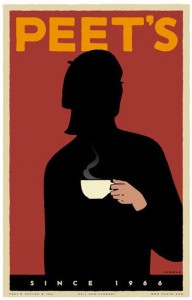If you were at the State of the City performance (#SacramentoSOTC) on February 13, you would have felt a palpable excitement about Sacramento’s future.
I say “performance” – not “speech” or “presentation” or “address” – because performance is what it was. Mayor Kevin Johnson, who’s been performing for audiences for decades, is a skilled entertainer, and he was on his game that night. Indeed, as I tweeted later that evening, his PR machine was on overdrive, and it was all about the new arena.
Approximately 70% of Johnson’s presentation was about the proposed arena. In fact, based on the SOTC presentation, you’d be hard pressed to name any other issues that affect Sacramento today – or that can’t be solved by the arena. Homeless and hungry? The new arena will provide food and money. Illiterate? Kings players will teach kids to read. Out of work? 4,000 permanent new jobs are coming to Sacramento, thanks to the arena.
This is the year of groundbreakings, Johnson said, “and we will not be ‘stopped,’” an intentional and obvious reference to Sacramento Taxpayers Opposed to Pork, or STOP*, the political action committee that wants to put an initiative on the June 2014 ballot allowing people to vote on the arena.
And he’s probably right. The mayor and city council may indeed be unstoppable on the arena issue.
I mean, where’s the opposition? Where is their PR machine? Are they hiding? Are they strategizing? What in the world are they waiting for? Tempus fugit.
Assuming that the initiative qualifies – and there’s no guarantee it will, due to a legal battle over the validity of STOP’s petitions – the petition authors and supporters have only a few short months to mount a campaign. The June election will be here in no time.
With help from Voters for a Fair Arena Deal (VFAD), STOP certainly did achieve a significant win in the battle by gathering more than the 22,000 signatures required to qualify their initiative. But that was a small win and not a victory, a point quickly brought home by the City Clerk’s rejection of the petitions on technical grounds.
STOP then filed a lawsuit, seeking to overturn the City Clerk’s decision. And if STOP wins that suit, it will have achieved another win. But again, not the ultimate victory.
On the other side, Mayor Johnson and his team are well aware that the war is in full swing. That’s why they essentially devoted the entire State of the City presentation to drive home their message that the arena will be a powerful economic “stimulus” for the city – and that it will be built. This the mayor’s #1 issue, and he will commit the full force of his available resources to ensuring the project is completed.
But what Johnson and his team also know – perhaps better than anyone – is that they really shouldn’t win this campaign. In fact, it should be a slam dunk for STOP.
As my debate opponent, R.E. Graswich, points out in his blog today, citizens are not inclined to vote for a subsidy: “Only about 35 percent of Sacramento voters turn out for June primary elections these days. People just don’t care. Yet I’ll bet 100 percent of our debate audience at Belle Cooledge Library votes. And 90 percent will oppose the subsidy.”
And history is on STOP’s side. In 2006, citizens voted overwhelmingly against a tax increase (Measures Q and R) that would have been used to subsidize a new arena. Nearly 80 percent of voters rejected that plan; and all things being equal, they’d probably vote the same way today.
However, all things aren’t equal. In 2006 there was significant opposition to the tax increase, including by the Sacramento Bee. There was leadership on the issue then, and that leadership was committed to defeating the subsidy.
And therein lies the difference. While Johnson and team are in the war room planning their campaign and launching their PR offensive, STOP and its partner VFAD have thus far failed to take any important or visible steps since early December. They’ve been silent. They’ve relied on their attorneys to take action and move the story forward. It’s as if they think that qualifying the initiative is all they need to do to win.
If they continue thinking that way, not only will they be surprised by the election outcome, they will have let down their supporters and the majority of Sacramento citizens, who opposed the arena subsidy in 2006 and would likely oppose it again.
Those citizens need leadership if their voice is to be heard. They need STOP and VFAD to quickly step forward, take control of their message, and use every opportunity to remind citizens why they should care about this initiative.
STOP and VFAD will never be able to match the spending that Mayor Johnson’s team will throw at the campaign, so they also need to be creative. They need to use highly effective and less costly PR tools like social media to get the word out and mobilize voters.
And they need to act quickly. In fact, they’re already behind. And every day, they cede more ground to the mayor’s relentless PR attack.
As the Roman poet reminds us, Dum loquimur, fugerit invida aetas: carpe diem. While we speak, envious time has fled: seize the day!
I hope for the sake of Sacramento’s citizens that STOP takes these words to heart.
* Note: STOP was a client of Bullet Consulting until early December, when we resigned (on good terms) due to a difference of opinion with STOP regarding strategy.







